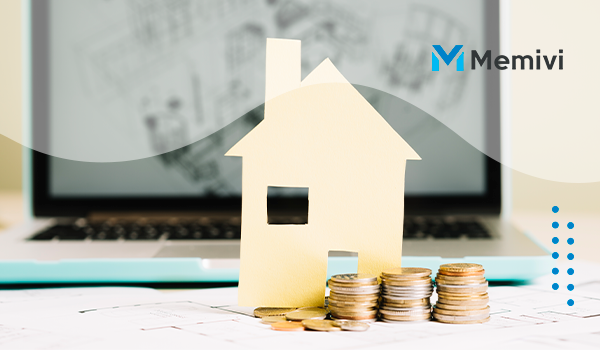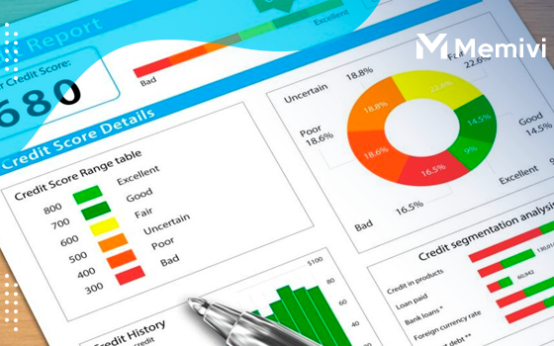
Both are secured loans that allow you to borrow against the value of your home, but they differ in terms of interest rates, repayment terms, and the amount of money you can borrow.
If you’re considering taking out a loan against your home’s equity, it’s important to understand the differences between these two options and choose the one that best suits your needs. In this blog post, we will compare HELOC and Home Equity Loan rates, discuss the pros and cons of each option, and help you make an informed decision about which type of loan is right for you.
Understanding the basics: What is a HELOC and a Home Equity Loan?
Before diving into the comparison of HELOC and home equity loan rates, it’s crucial to understand the basics of these two financial products. Both a HELOC and a home equity loan involve utilizing the equity in your home, but they differ in terms of how you access the funds.
A HELOC, short for Home Equity Line of Credit, is a revolving line of credit that allows homeowners to borrow against the equity they have built up in their property. It operates similarly to a credit card, where you have a set credit limit and can borrow as much or as little as you need, as long as it’s within that limit.
With a HELOC, you can access funds whenever you need them during the draw period, which is typically around 10 years.
During the draw period, you only need to make interest payments on the amount you borrow. On the other hand, a home equity loan, also known as a second mortgage, is a lump-sum loan that is secured by the equity in your home.
This loan provides you with a fixed amount of money upfront, which you receive in a single disbursement. Unlike a HELOC, a home equity loan typically comes with a fixed interest rate and fixed monthly payments over a specified term.
Factors that influence HELOC and Home Equity Loan Rates
When it comes to comparing HELOC and Home Equity Loan rates, there are several factors that can influence the interest rates offered by lenders.
Understanding these factors can help you find the best deal that suits your financial needs.
- Credit Score: Your credit score plays a crucial role in determining the interest rate on both HELOCs and Home Equity Loans. Lenders typically offer lower rates to borrowers with higher credit scores, as they are considered less risky. It’s important to maintain a good credit score to secure favorable rates.
- Loan-to-Value (LTV) Ratio: The LTV ratio is the percentage of your home’s appraised value that you are looking to borrow. Lenders may offer more competitive rates if your LTV ratio is lower, as it indicates a lower risk for them. A higher LTV ratio, on the other hand, may result in higher interest rates.
- Market Conditions: Interest rates are influenced by overall market conditions and fluctuations in the economy. It’s essential to keep an eye on current market trends and interest rate movements to take advantage of favorable rates. Consulting with a financial advisor or mortgage broker can provide valuable insights in this regard.
- Loan Amount: The amount you intend to borrow can also impact the interest rates offered by lenders. Higher loan amounts may attract higher rates, while smaller loan amounts may be eligible for more competitive rates. It’s important to carefully consider your borrowing needs and the associated interest rates to make an informed decision.
- Repayment Terms: The duration of the loan or the repayment terms can also affect the interest rates. Shorter loan terms usually come with lower interest rates, while longer-term loans may have slightly higher rates. It’s essential to weigh the pros and cons of different repayment terms and choose the one that aligns with your financial goals.
- Lender Policies: Each lender may have different policies and criteria that can impact the interest rates they offer. It’s advisable to shop around and compare rates from various lenders to find the best deal. Additionally, consider factors such as customer service, reputation, and any additional fees or charges associated with the loan.
By considering these factors, you can evaluate HELOC and Home Equity Loan rates effectively and make an informed decision that suits your financial situation. Remember to compare rates from multiple lenders, review the terms and conditions thoroughly, and seek professional advice if needed.
Assessing the pros and cons of a Home Equity Loan

When considering a home equity loan, it is crucial to carefully assess its pros and cons to determine if it is the right choice for you. Here are some factors to consider:
1. Fixed Interest Rates: One of the significant advantages of a home equity loan is that it typically comes with a fixed interest rate. This means that your monthly payments will remain consistent over the life of the loan, providing stability and predictability. It can be particularly beneficial if you prefer a set budget and want to avoid any surprises.
2. Lump Sum Payment: A home equity loan provides you with a lump sum of money upfront, which can be advantageous if you have a specific expense or project in mind. Whether you want to consolidate high-interest debt, fund a home renovation, or cover a major life event, a home equity loan gives you immediate access to the funds you need.
3. Longer Repayment Terms: Home equity loans often come with longer repayment terms compared to other types of loans, allowing you to spread out your payments over a more extended period. This can lower your monthly payment amount, making it more manageable for your budget. However, keep in mind that a longer repayment term means you may end up paying more in interest over time.
4. Risk of Foreclosure: It is essential to recognize that a home equity loan uses your home as collateral. If you fail to make your payments as agreed, you could be at risk of foreclosure. Carefully assess your financial situation and consider the potential consequences before committing to a home equity loan.
5. Closing Costs and Fees: Similar to any loan, a home equity loan may involve closing costs and fees. These expenses can include appraisal fees, origination fees, and legal fees. Be sure to factor in these costs when assessing the overall affordability of a home equity loan.
By thoroughly evaluating these pros and cons, you can make an informed decision about whether a home equity loan aligns with your financial goals and needs. Consider consulting with a financial advisor to ensure you fully understand the implications and select the best option for your specific circumstances.
Making an informed decision: Choosing the best option for your financial needs
When it comes to accessing the equity in your home, it’s crucial to make an informed decision that aligns with your financial needs.
Both Home Equity Lines of Credit (HELOC) and Home Equity Loans offer homeowners the opportunity to tap into their home’s value, but they have different terms and features that may suit different circumstances. Before making a choice, it’s essential to evaluate your financial goals and requirements.
Consider factors such as the purpose of the funds, the amount you need, the repayment terms, and the interest rate. If you have a specific expense in mind, like a home renovation or debt consolidation, a Home Equity Loan might be the better option.
With a Home Equity Loan, you receive a lump sum upfront, and the interest rate is usually fixed, providing stability and predictability for your monthly payments. This can be beneficial if you prefer a structured repayment plan or if you have a low tolerance for fluctuating interest rates.
Final Thoughts
We hope you found our blog post on comparing HELOC and home equity loan rates helpful in your quest to find the best deal for you. Making informed decisions about your finances is crucial, especially when it comes to borrowing against your home’s equity.
By understanding the differences between HELOC and home equity loan rates, you can choose the option that aligns with your needs and financial goals.
Remember to consider factors such as interest rates, repayment terms, and flexibility before making a decision. Armed with this knowledge, you can confidently navigate the loan market and secure the best deal for your specific situation.


 Best Allowance and Chore App for Kids <p class='sec-title' style='line-height: normal; font-weight: normal;font-size: 16px !important; text-align: left;margin-top: 8px;margin-bottom: 0px !important;'> As parents, we all know how challenging it can be to teach our children the value of money and how to manage it effectively. </p>
Best Allowance and Chore App for Kids <p class='sec-title' style='line-height: normal; font-weight: normal;font-size: 16px !important; text-align: left;margin-top: 8px;margin-bottom: 0px !important;'> As parents, we all know how challenging it can be to teach our children the value of money and how to manage it effectively. </p>  Victory for Consumers as All Three Credit Bureaus Now Offer Weekly Free Report Access <p class='sec-title' style='line-height: normal; font-weight: normal;font-size: 16px !important; text-align: left;margin-top: 8px;margin-bottom: 0px !important;'> In a victory for consumers everywhere, all three credit bureaus have announced that they will now offer free weekly credit reports. </p>
Victory for Consumers as All Three Credit Bureaus Now Offer Weekly Free Report Access <p class='sec-title' style='line-height: normal; font-weight: normal;font-size: 16px !important; text-align: left;margin-top: 8px;margin-bottom: 0px !important;'> In a victory for consumers everywhere, all three credit bureaus have announced that they will now offer free weekly credit reports. </p>  Revolutionizing Comfort: The Best HVAC Software of 2024 <p class='sec-title' style='line-height: normal; font-weight: normal;font-size: 16px !important; text-align: left;margin-top: 8px;margin-bottom: 0px !important;'> As technology advances, it's becoming increasingly more important to use software that can help streamline your business and keep you competitive. </p>
Revolutionizing Comfort: The Best HVAC Software of 2024 <p class='sec-title' style='line-height: normal; font-weight: normal;font-size: 16px !important; text-align: left;margin-top: 8px;margin-bottom: 0px !important;'> As technology advances, it's becoming increasingly more important to use software that can help streamline your business and keep you competitive. </p>